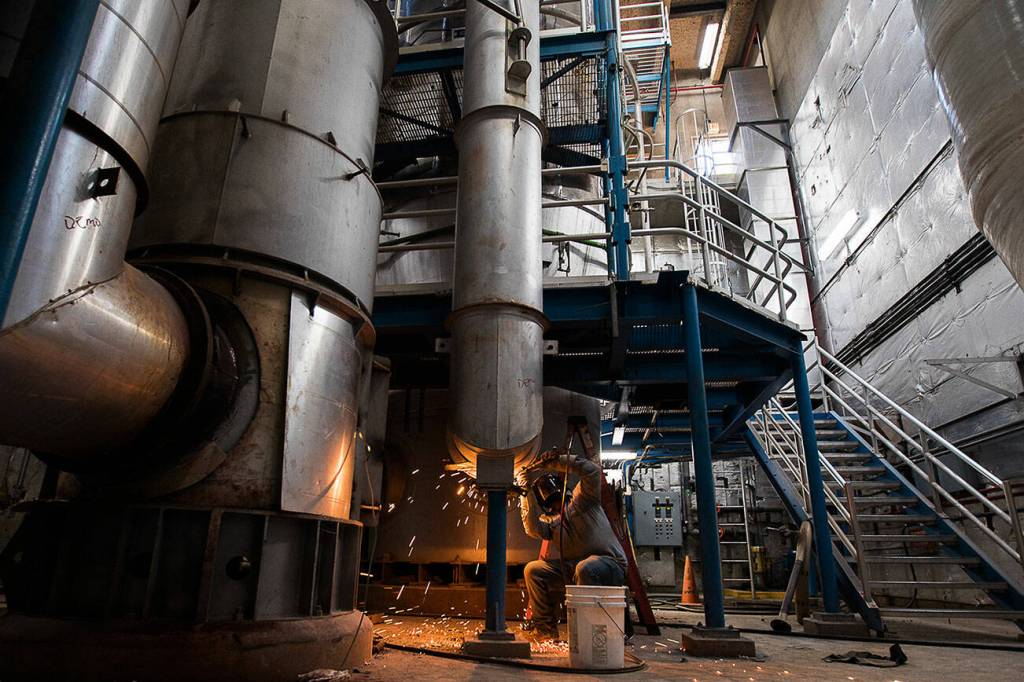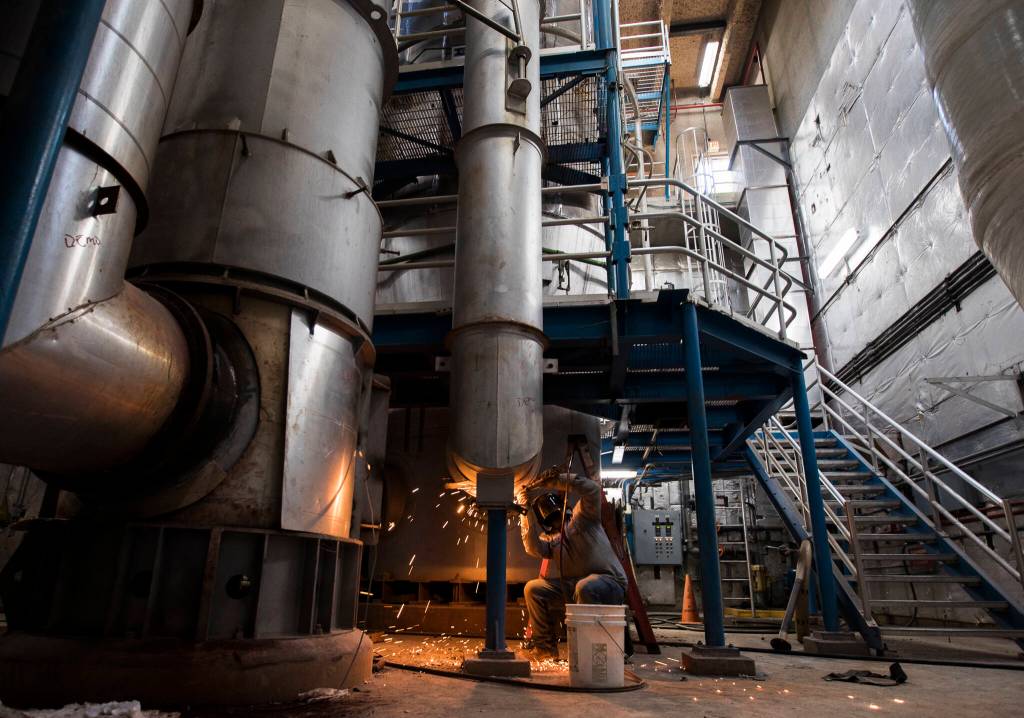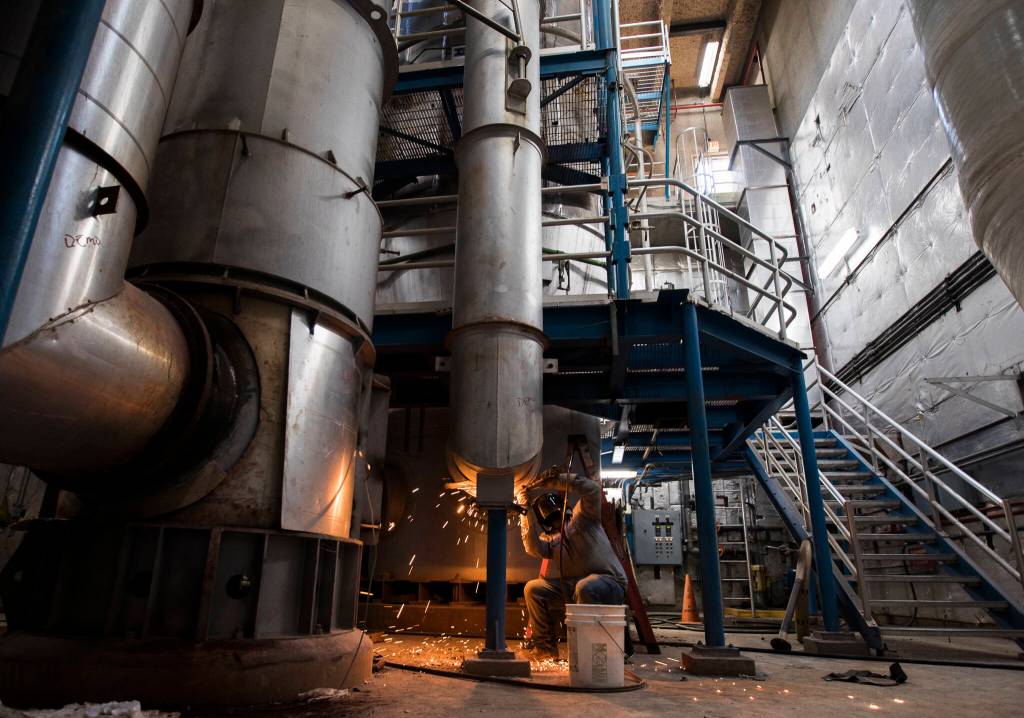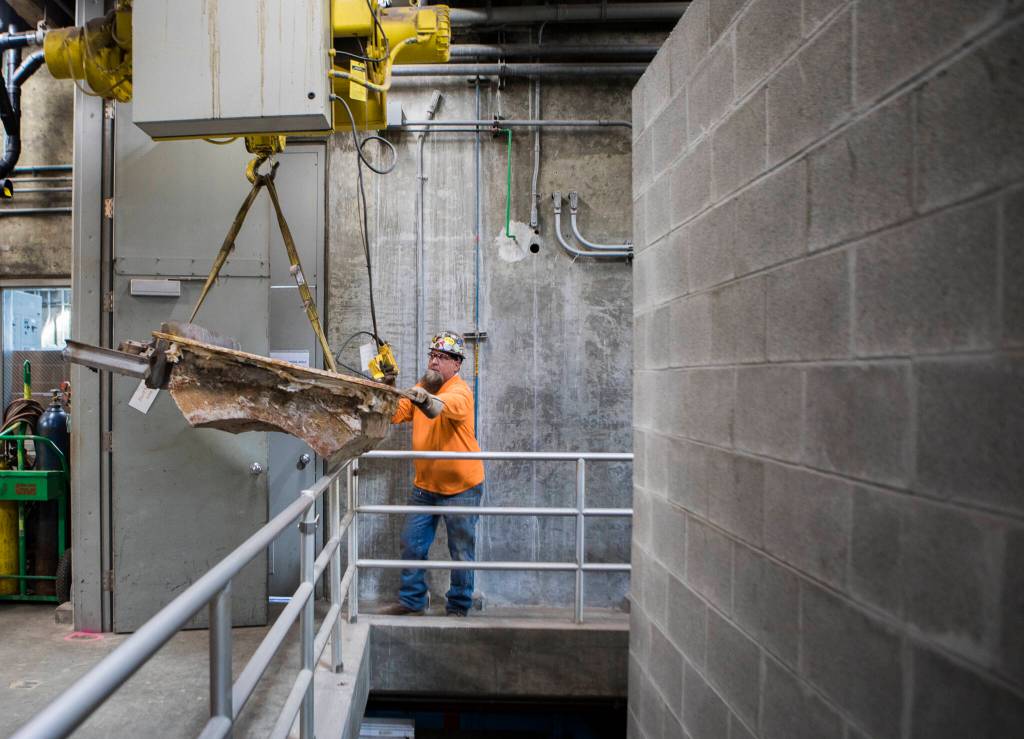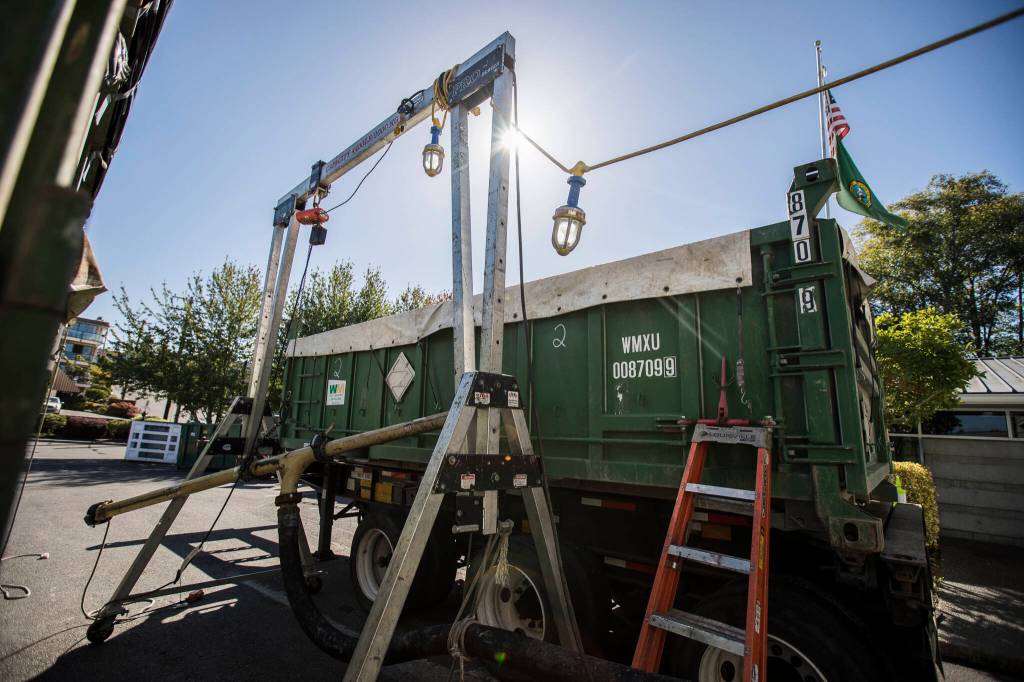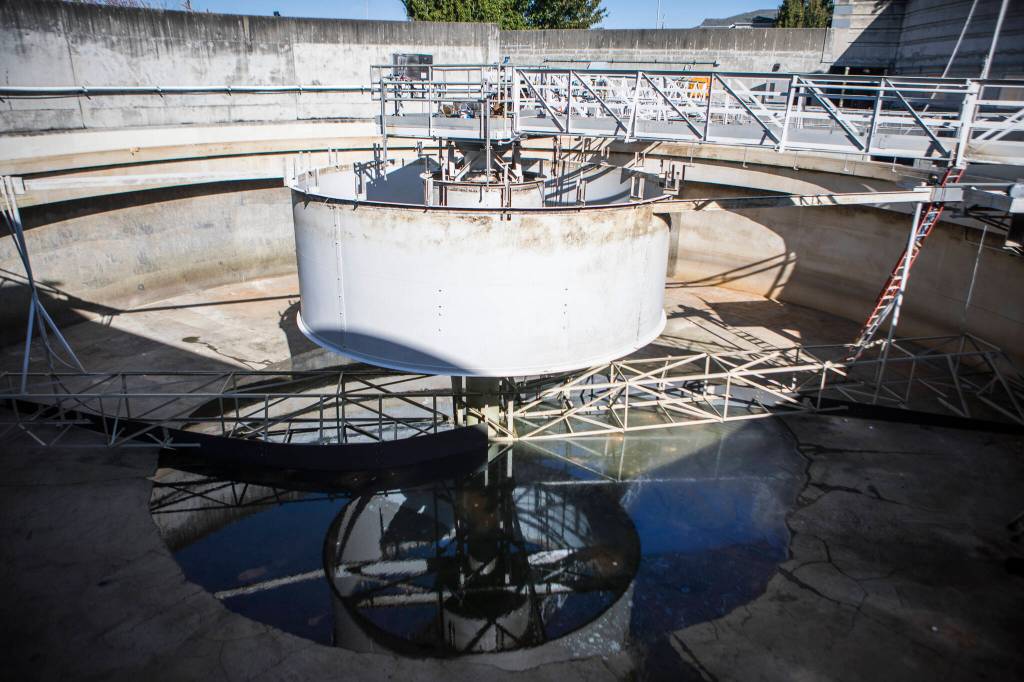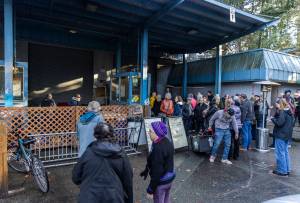In Edmonds, $26M goes to a cleaner way to get rid of poop
Published 1:30 am Wednesday, September 22, 2021







EDMONDS — If you live in Edmonds, whatever you flush down the toilet will soon be a little better for the world.
The city’s new Carbon Recovery Project has a fancy name for a dirty job: reducing the carbon footprint of sludge.
Yes, it’s time to talk about what happens to poop.
First, the solids are separated from the liquids. Then, at least for the past 30 or so years in Edmonds, the solids have been incinerated and reduced to ash, which is then trucked to a landfill. That process has some unfortunate side effects, said Edmonds Public Works Director Phil Williams.
“You’re taking all that carbon, all that organic material, and you’re just burning it, and it just goes right up the stack and into the atmosphere,” he said.
The incinerator in Edmonds has been used almost a decade beyond its intended life and has fallen behind the current emissions standards for wastewater treatment, per federal regulations. The time has come to replace it.
At $26 million, the estimated budget for the carbon recovery project sounds expensive, but, Williams said, it actually comes in a couple million dollars cheaper than what a new incinerator would cost. The Edmonds City Council approved $14.4 million in revenue bonds last October to pay for it. The rest will come from Mountlake Terrace, Shoreline and the Olympic View Water and Sewer District, which serves parts of unincorporated Snohomish County. Those three sewer districts send their wastewater to the treatment plant in Edmonds.
The Edmonds wastewater treatment plant processes an average of up to about 6 million gallons of wastewater a day. It was built in 1957 but has since seen numerous upgrades as more people have moved to the region.
When the project is done, wastewater will be processed through pyrolysis and gasification, whereby the heat will be cranked up to about 1,400 degrees. Pyrolysis doesn’t get quite as hot as incineration, and it doesn’t use oxygen. Without oxygen, there’s no combustion. No combustion means no fire. So the waste dries up, turns charcoal-y and becomes what’s called biochar.
About a third of the carbon that would have been shot into the sky is instead captured in that biochar, which can then be used for a range of purposes. For example, according to a report from Washington State University, biochar can be used as a kind of fertilizer for soil, or for stormwater remediation.
Williams isn’t really sure what is going to be done with the biochar. The city could use it, or it could be sold, though the market hasn’t really settled on a value for the stuff.
“It’s not like you can go on eBay and buy biochar,” he said.
Actually, you can, for 10 to 20 bucks a gallon, but that ruins his quip. The point is, the city isn’t accounting for any theoretical profits that might be made from biochar. But the possibilities are intriguing.
The day-to-day operational costs should be significantly cheaper, Williams said, because pyrolysis and gasification use less electricity than incineration. Savings on operational costs could be up to $341,000 a year. It’s “cheaper, cheaper to operate, and less energy intensive,” Williams said of the carbon recovery project.
The other two-thirds of the carbon will turn into syngas, through gasification, which goes hand-in-hand with pyrolysis. The syngas can be collected and used to provide more heat, helping further save on electricity. That carbon still is emitted into the atmosphere, but there’s some small consolation that it will at least have a use.
Other parts of the treatment plant have already been upgraded as part of a “Pathway to Sustainability” plan, saving $200,000 in electricity and reducing greenhouse gas emissions by more than 1,000 tons a year. The Water Environment Federation recognized the treatment plant last year with the Utility of the Future Today energy efficiency award.
Crews are currently demolishing the incinerator equipment. The Carbon Recovery Project should be operational sometime next year. In the meantime, about 20 tons of waste per day will be hauled to a landfill in Oregon, by railcar.
Zachariah Bryan: 425-339-3431; zbryan@heraldnet.com. Twitter: @zachariahtb.
Environmental Reporting Fund
If you’d like to see more stories like this, donate to The Daily Herald’s Environmental and Climate Change Reporting Fund in partnership with Journalism Funding Partners. Go to heraldnet.com/climatedonate.

